Xi Jinping’s warning against return of Cold War
China’s president warns ‘strong should not bully weak’ and reveals unease with countries pushing back on Beijing’s assertiveness.
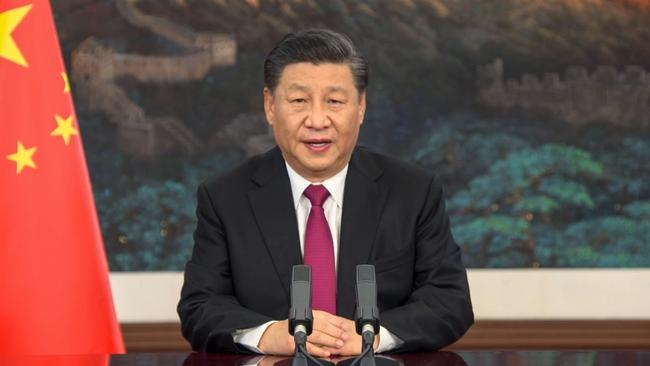
Chinese President Xi Jinping has declared the “strong should not bully the weak” as he delivered a veiled warning to the new Biden administration days after sending warplanes into Taiwanese airspace and engaging in skirmishes with India.
“To build small circles or start a new Cold War, to reject, threaten or intimidate others, to wilfully impose decoupling, supply disruption or sanctions, and to create isolation or estrangement will only push the world into division and even confrontation,” he said.
The speech, made at the World Economic Forum, was his most significant on foreign policy since Joe Biden’s election and comes amid continued trade tensions between Beijing and Australia and simmering anger about how Chinese authorities dealt with the emergence of COVID-19.
Despite international criticism for aggressive foreign policy positions taken in recent years, Mr Xi cast China as a victim in its confrontations with the Trump administration.
“The strong should not bully the weak,” he said. “Decision[s] should not be made by simply showing off strong muscles or waving a big fist.”
Positioning himself as the defender of the multilateral system, Mr Xi called for reforms of the World Trade Organisation and said China would continue to promote a “new type of international relations”. “China is working hard to bridge differences through dialogue and resolve disputes through negotiation, and to pursue friendly and co-operative relations with other countries on the basis of mutual respect, equality and mutual benefit,” he said.
The Morrison government in December took a case against China to WTO after Beijing imposed an 80 per cent tariff on Australian barley exports.
Beijing imposed the tariff in May, weeks after Australia called for an independent inquiry into the origins of the coronavirus without forewarning China.
Mr Xi’s administration has since broadened its trade retaliation campaign to exports worth about $20bn a year, including coal, timber, lobsters and wine.
Scott Morrison this week told The Australian he was open to meeting Mr Xi to discuss bilateral relations, but insisted it must be a “no-conditions” meeting.
Despite China’s ongoing dispute with Canberra, Beijing agreed on Tuesday to an expanded trade deal with New Zealand, including tariff-free access for almost $NZ3bn ($2.8bn) of wood and paper products and benefits for seafood exporters.
Bilahari Kausikan, a former Singaporean Foreign Affairs Ministry secretary, told The Australian that Mr Xi’s speech was “overflowing with irony”, pointing not only to the trade restrictions but incursions in the South China Sea and East China Sea.
“But, you know, they don’t care what they say,” Mr Kausikan, one of the region’s leading foreign policy thinkers, said.
The swipe at the “small circles”, the former diplomat said, revealed Beijing’s unease with a “nascent coalition” of countries concerned about Chinese behaviour.
“That has been created much more by Xi than by Trump,” he said. “If you work that system a bit more coherently, as Biden’s clear priority is, China is in big trouble.”
Richard McGregor, a senior fellow at the Lowy Institute, said: “It’s a message well-honed for its target audience. And it’s a different one to the one he’s delivering at home. The one abroad is about openness. The one at home is about self-reliance.”
Having mostly brought the coronavirus epidemic under control, China was the only major economy to grow in 2020.
A new United Nations report found that last year China overtook the United States as the world’s largest recipient of foreign direct investment, increasing by 4 per cent to $US163bn ($211bn).
China’s behaviour last year nudged the Quad — an informal arrangement between the US, Japan, India and Australia — into its first joint military exercises since 2007.
Those Malabar training exercises in the Indian Ocean took place in November, five months after 20 Indian soldiers were killed in a clash with the People’s Liberation Army on their disputed mountainous border.
The Indian Army at the weekend confirmed there was another “minor face-off” last week between the two nuclear powers.
Separately, Taiwan reported a large incursion of Chinese warplanes just days after the inauguration of Mr Biden. In his roughly 25-minute address, Mr Xi warned against “ideological prejudice”, a common refrain by Chinese officials and state media as the Trump administration — particularly former secretary of state Mike Pompeo — directly criticised the Chinese Communist Party.
Mr Xi said: “Difference in itself is no cause for alarm. What does ring the alarm is arrogance, prejudice and hatred; it is the attempt to impose hierarchy on human civilisation or to force one’s own history, culture and social system upon others.”
Mr McGregor said: “They’re getting more demanding that the party and the party state system be acknowledged and respected. It’s not new internally, but this is delivered to an international audience.”
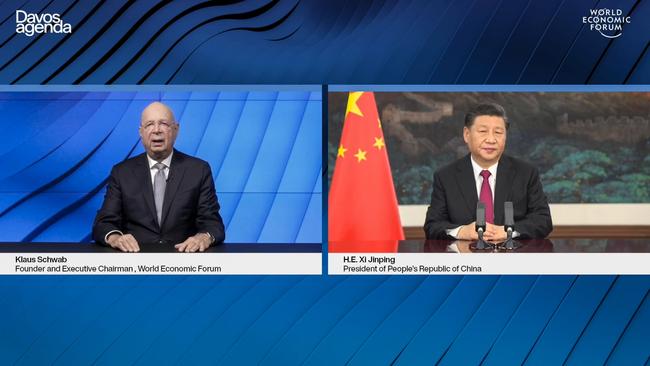
Since coming to office, the Biden administration has backed Mr Pompeo’s comments that the Chinese government had committed genocide against the Uighur minority in the far western region of Xinjiang and invited Taiwan’s de facto ambassador in Washington DC to the inauguration.
White House spokeswoman Jen Psaki said Mr Xi’s comments would not change the new administration’s approach. “No, the comments don’t change anything,” Ms Psaki said hours after the speech. “We believe this moment requires a strategic and a new approach forward.”
Chinese state media, including the Chinese Communist Party-controlled Global Times, described Mr Xi’s speech as “a stern repudiation” and “notably sharp-toned … clearly aimed at policies orchestrated by the US government”.
Gao Fei, vice-president of China Foreign Affairs University in Beijing, told the Global Times that Mr Xi’s speech highlighted China’s vision of “true multilateralism” in the wake of talks about co-operation among Western democracies.
“But we have to be clear what real multilateralism is and what fake multilateralism is … intentionally building exclusive small circles among traditional democratic countries does not result in actual multilateral co-operation,” Professor Gao said.
Mr Xi said China would continue to champion the interests of the developing world, including the management of COVID-19.
“China will continue to share its experience with other countries, do its best to assist countries and regions that are less prepared for the pandemic, and work for greater accessibility and affordability of COVID vaccines in developing countries,” he said.


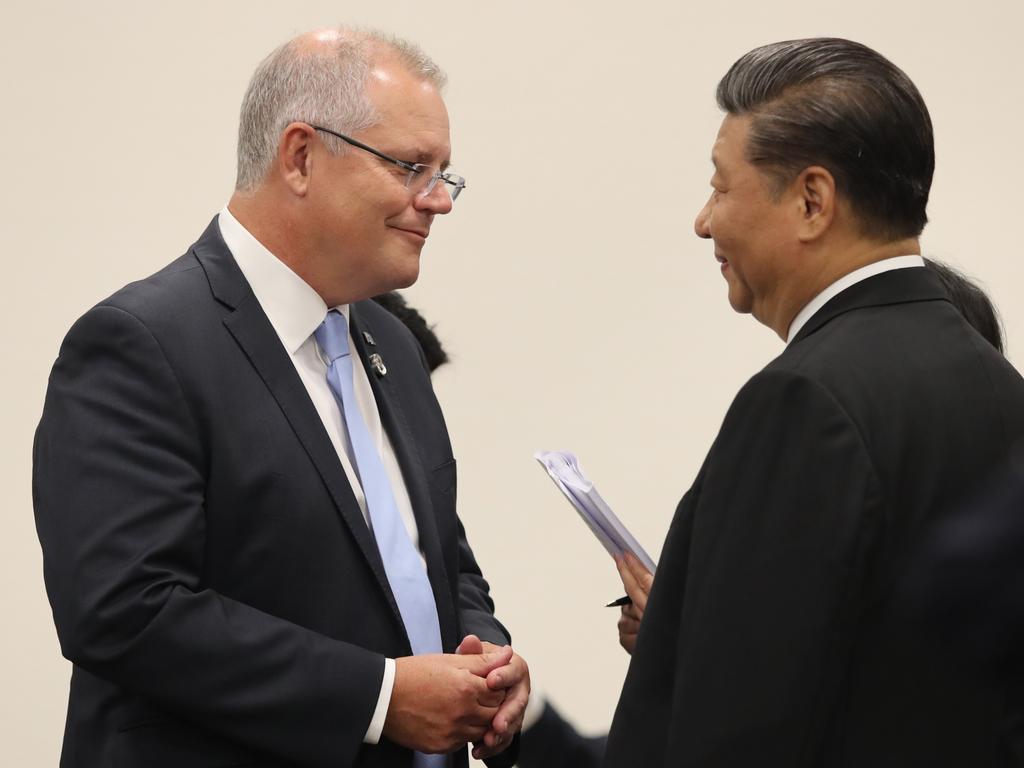
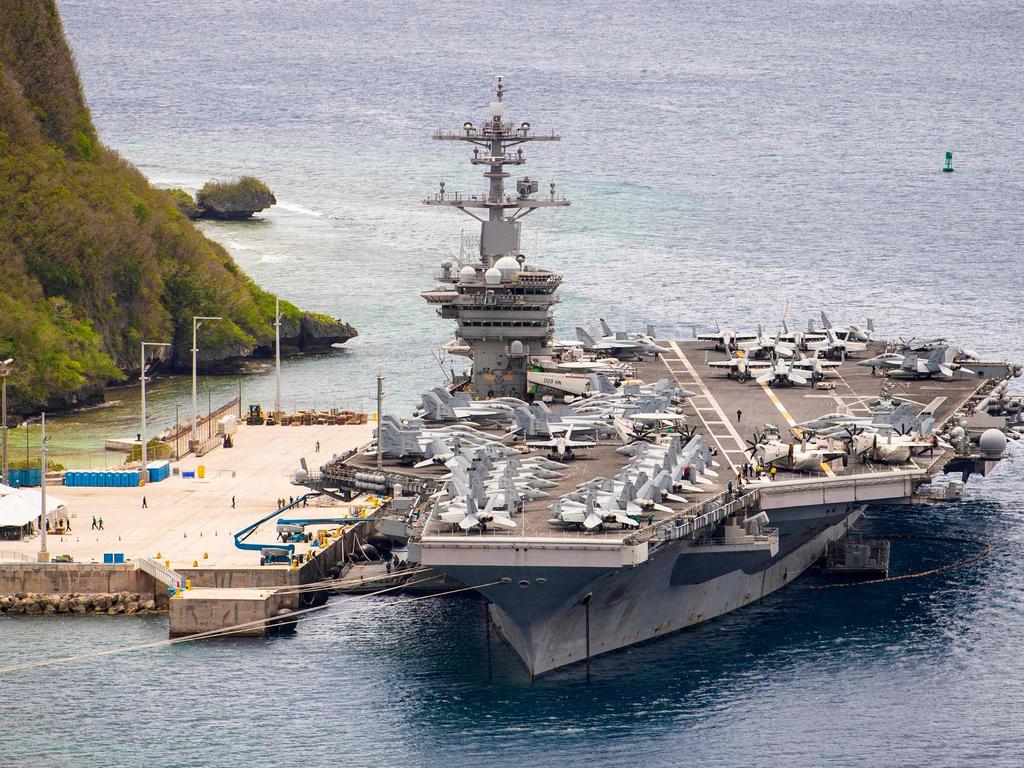
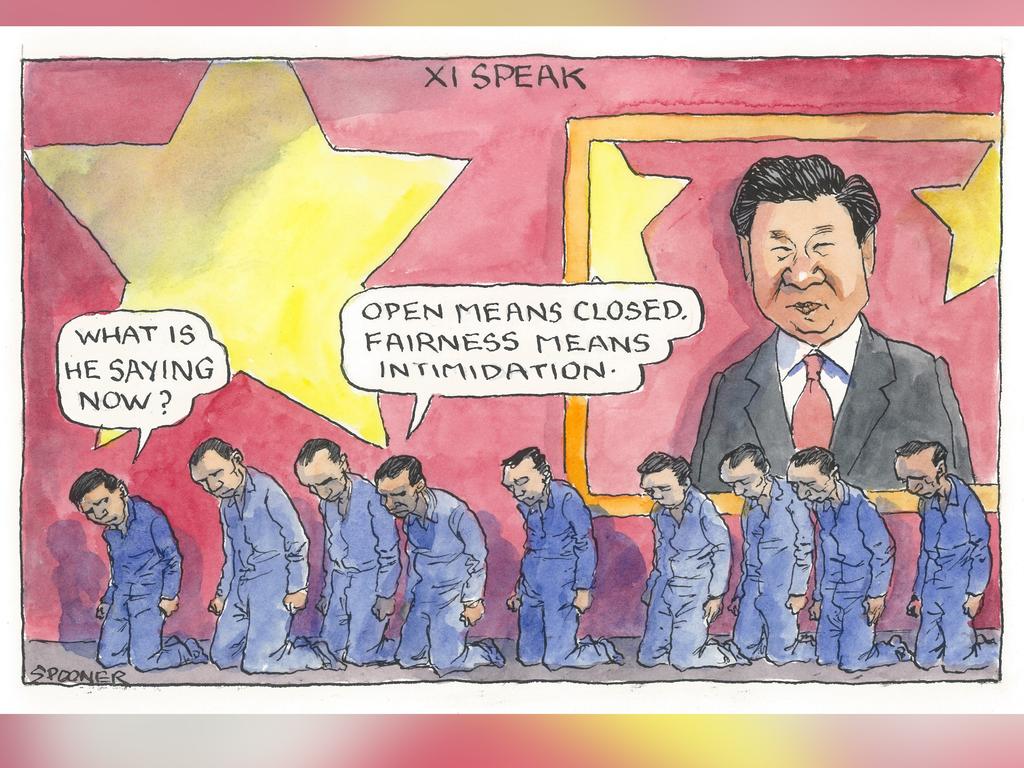
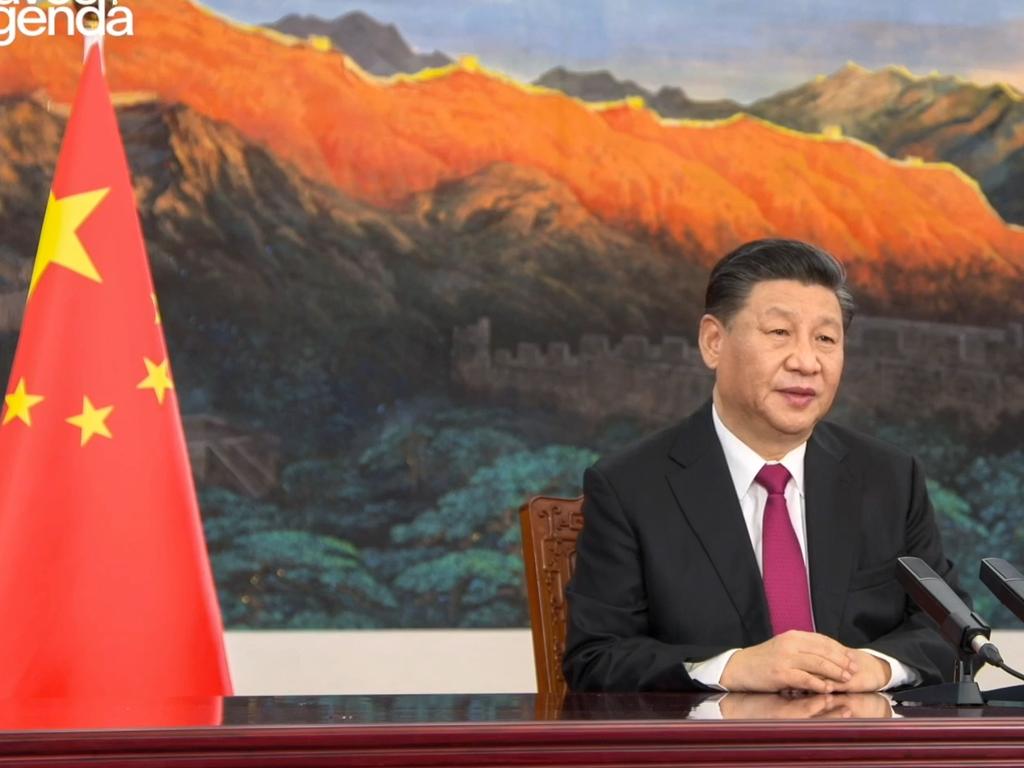


To join the conversation, please log in. Don't have an account? Register
Join the conversation, you are commenting as Logout